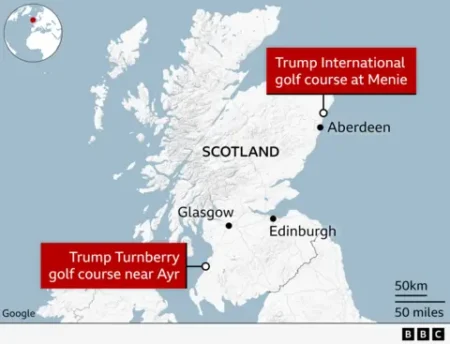Elon Musk, the renowned tech entrepreneur and CEO of Tesla, has recently expressed his disappointment regarding a significant policy initiative put forward by US President Donald Trump. This policy, widely referred to as Trump’s “big, beautiful” tax and spending bill, has drawn mixed reactions even among Trump’s supporters, particularly after its narrow passage in the US House of Representatives last week. The proposed legislation, designed to facilitate extensive tax cuts alongside a commitment to bolster defense spending, is now set to proceed to the Senate for further deliberation.
In an interview with CBS Sunday Morning, Musk candidly critiqued the plan, articulating his worries that it undermines the fiscal discipline he believed he had instilled while working with Trump on various cost-management projects. Musk’s apprehensions stem from the perceived contradiction between the president’s spending bill and the tight budget policies he had previously endorsed, which included slashing funds for foreign aid and other expenditures. His remarks signal a notable shift in perspective, especially coming from someone who has been a close ally of the Trump administration.
During the interview, Musk addressed the bill’s potential impact on the budgetary deficit, suggesting that it does not merely aim to reduce expenditure but might instead exacerbate the financial gap between government revenue and spending. It has been projected that the legislation could inflate the deficit by approximately $600 billion, a figure that has raised eyebrows across political lines. Musk also mentioned that this new financial approach could distort the efforts of the Department of Government Efficiency, a cost-cutting advisory panel he had once been part of.
Musk further elaborated, using a bit of humor, that a bill could indeed be described as ‘big’ or ‘beautiful’ but questioned whether it could embody both qualities at the same time. His astute commentary underlined the discontent brewing among some factions of the Republican Party, who have raised concerns about the trajectory of fiscal policy under Trump’s leadership.
The GOP’s broader friction regarding tax and spending priorities has been apparent, manifesting in the contentious discussions that preceded the bill’s passage in the House. Trump’s agenda, which includes extending tax cuts initiated during his first term in 2017 and boosting funding for military initiatives, faces pushback not only from progressives but also from within his party. Musk’s recent criticism indicates a growing distance from Trump, particularly given that only a year ago, he played an instrumental role in supporting Trump’s electoral campaign, culminating in him donating over $250 million.
These comments come at a time when Musk has also signaled a desire to reduce his political involvement. This includes his decision to step back from his role at Doge, the efficiency-focused group within the administration, and his assertion that he plans to curtail political spending moving forward. The heightened scrutiny around Musk is particularly relevant with regard to Tesla, which has faced various challenges, including protests and declining sales linked to his controversial policies such as significant layoffs among federal workers.
In summation, Elon Musk’s recent remarks encapsulate not only his personal transition but also reflect larger debates regarding fiscal responsibility within the Trump administration and the Republican Party as a whole. As the tax and spending bill heads to the Senate, the reaction from various stakeholders—including Musk—will likely continue to shape the narrative surrounding fiscal policy in the United States, highlighting the intricate balancing act between tax cuts, spending, and the overall economic health of the nation.










